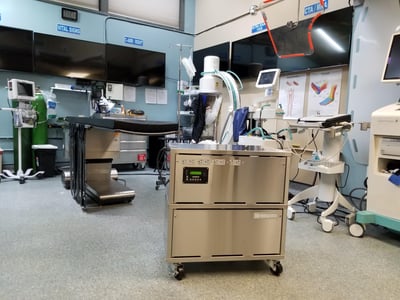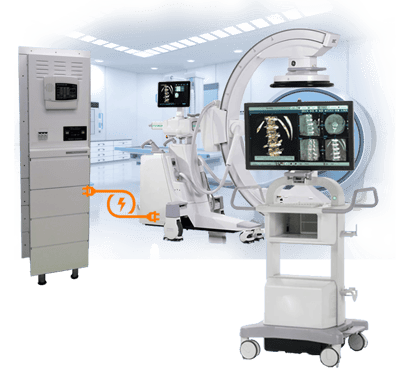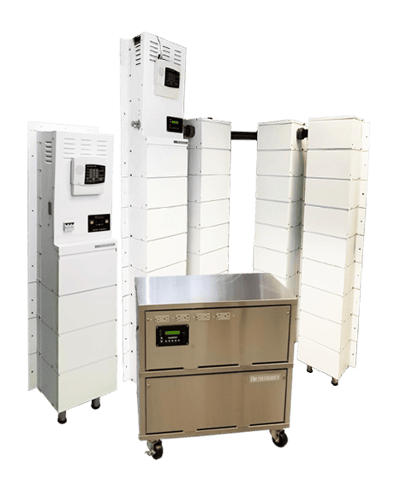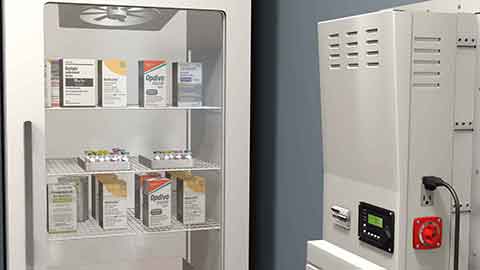Looking To Design a Safe and Modern Environment? Explore the Best Practices for Outpatient Surgery Centers.
In case you missed it, catch up on the previous entries in our series detailing the design of surgery centers and how backup power fits in.
Outpatient surgery centers and ambulatory surgery centers (ASCs) stand as beacons of progress, offering convenient, cost-effective, and patient-centric care. As the demand for outpatient services continues to surge, these centers face the challenge of creating safe and modern environments that inspire confidence among patients and medical professionals alike. 
Designing a cutting-edge outpatient surgery center requires a delicate balance of innovation, safety, and efficiency. In this article, we embark on a journey to explore the best practices that transform surgery centers into spaces that prioritize patient well-being, safeguard vital biomedical materials, and embrace the reliability of backup power in healthcare facilities.
Let Us Assist You With Your Backup Power Needs!
Request An Assessment
Embrace Patient-Centered Design: Safety and Comfort in Focus
Creating a patient-centered environment is the cornerstone of a successful outpatient surgery center. This involves strategic facility design that fosters patient safety and comfort. Consider ergonomic waiting areas, spacious patient rooms, and well-planned nursing stations to optimize workflow and enhance patient experience. Ensure adequate signage and wayfinding to reduce patient stress and facilitate smooth navigation throughout the center. A thoughtful patient-centered design is the first step towards building trust and loyalty among patients.
Invest in State-of-the-Art Equipment: Advancing Medical Capabilities
To offer top-notch medical care, surgery centers must invest in state-of-the-art equipment and technology. From advanced surgical instruments to high-resolution imaging systems, cutting-edge tools enhance diagnostic accuracy and surgical precision.
Embrace electronic health records (EHRs) to streamline patient information management, leading to more efficient care coordination among medical professionals. By staying at the forefront of medical technology, surgery centers can confidently deliver the best outcomes for their patients.
Prioritize Backup Power Solutions: A Lifeline in Critical Moments
In the unpredictable landscape of healthcare, ensuring continuous power supply is non-negotiable. Power outages can have devastating consequences, disrupting critical surgeries and compromising patient safety. 
Investing in backup power solutions, such as uninterruptible power supply (UPS) systems and emergency generators, is a vital step in protecting patients, medicines, vaccines, test samples, and other essential biomedical materials. With reliable backup power, surgery centers can operate seamlessly during unexpected blackouts, safeguarding lives and preserving the integrity of valuable medical resources.
Implement Stringent Infection Control Measures: Safeguarding Patient Well-Being
Infection control is of utmost importance in any healthcare setting. Surgery centers must adhere to stringent protocols to minimize the risk of infections and maintain a safe environment for patients and staff.
Regularly clean and disinfect all surfaces, provide ample hand sanitizing stations, and ensure proper ventilation throughout the facility. By prioritizing infection control, surgery centers demonstrate their commitment to patient well-being and foster a reputation for excellence.

Staff Training and Continuous Education: The Key to Quality Care
The success of any surgery center hinges on the skills and expertise of its staff. Hiring qualified surgeons, nurses, anesthesiologists, and support personnel is essential, but it doesn't end there. Ongoing staff training and continuous education are crucial to stay updated with the latest medical advancements and best practices. A well-trained and knowledgeable staff translates into better patient outcomes, improved efficiency, and higher patient satisfaction.
Adhere to Regulatory Standards: Building Trust through Compliance
Compliance with regulatory standards is not just a legal requirement; it is a fundamental aspect of building trust with patients and stakeholders. Surgery centers must meet stringent regulations and obtain necessary licenses and certifications. 
Accreditation from reputable organizations, such as the Accreditation Association for Ambulatory Health Care (AAAHC) or The Joint Commission, further validates a center's commitment to quality and safety.
Conclusion:
Designing a safe and modern environment for outpatient surgery centers is a transformative journey that demands attention to detail and a dedication to patient well-being. By embracing patient-centered design, investing in advanced equipment, prioritizing backup power solutions, implementing strict infection control measures, and fostering a skilled and educated staff, surgery centers can elevate the quality of care they provide.
As centers navigate the intricacies of designing a modern facility, they must remain steadfast in their commitment to protecting patients, medicines, vaccines, test samples, and other essential biomedical materials. By adhering to best practices and meeting regulatory standards, outpatient surgery centers will not only thrive in the competitive healthcare landscape but also make a lasting impact on the lives of their patients, empowering them with confidence and trust in the future of medical care.
Read the next blog in our series on surgery centers here.
Let Us Assist You With Your Backup Power Needs!


